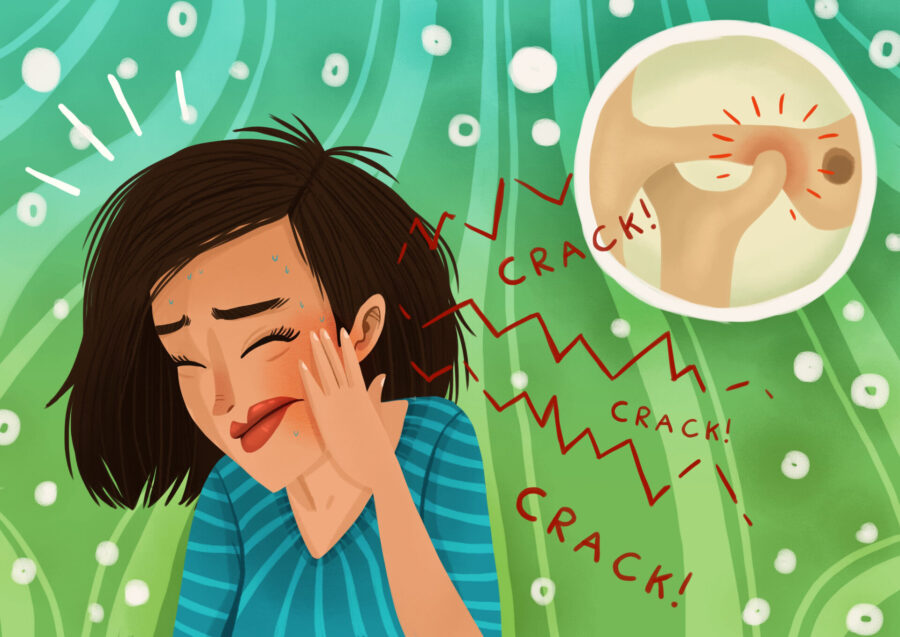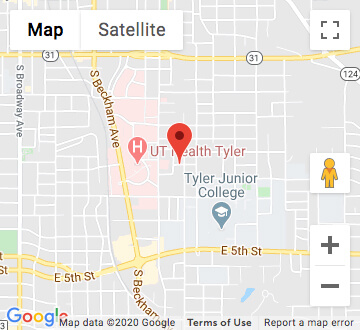
You’re enjoying a crunchy taco or a chewy steak, and then it happens—pop. Your jaw clicks or cracks like a knuckle. You pause. Did anyone else hear that? Is it normal?
For many people, jaw popping while chewing isn’t painful. Still, it can be distracting. And if it comes with tightness or soreness, it’s even more noticeable. Let’s talk about what might be going on and when it’s worth getting checked out.
Jaw Popping and Cracking: What’s Actually Happening?
The jaw joint—also known as the temporomandibular joint (TMJ)—is a small but mighty hinge that connects your lower jaw to your skull. It moves every time you eat, speak, yawn, or laugh. Sometimes, it gets a little out of sync.
When your TMJ shifts slightly or the small cushioning disc inside the joint moves, you might hear a popping or clicking sound. It’s like a snap of cartilage or a shift in pressure—not unlike cracking a knuckle.
Jaw cracking on its own doesn’t always signal trouble. But when it pairs with jaw tightness, limited movement, or discomfort, it’s worth a closer look.
What Causes Jaw Tightness and Clicking?
There’s a whole list of things that can make your jaw feel off balance. Here are a few:
- Jaw clenching from stress or habit
- Nighttime grinding (bruxism) that you may not realize is happening
- A misaligned bite that throws the joint mechanics off
- Arthritis in the joint, which affects its smooth motion
- Injury or repeated strain, even from something simple like chewing gum too much
People often carry tension in their jaws without realizing it. If your jaw feels tight at the end of the day—or in the morning—it might be a clue.
When is Jaw Cracking a Problem?
If your jaw only pops now and then without pain or trouble chewing, it may not be a big deal. But if any of these symptoms show up alongside that cracking sound, it’s time to take action:
- Persistent soreness or aching
- Tightness that makes it hard to open your mouth fully
- Feeling like your jaw “locks” or catches
- Popping sounds that get louder or more frequent
If keeping your mouth open during a dental exam or cleaning feels uncomfortable—or even impossible—it also might be a sign your jaw needs a closer look.
Tips to Ease Jaw Stress
You don’t have to wait for the problem to get worse. Some simple changes may reduce the frequency or severity of jaw popping:
- Switch to softer foods for a few days if your jaw feels sore
- Use warm compresses to relax muscles around the joint
- Watch your posture—slouching can subtly shift your bite
- Limit yawning wide or chewing gum for long periods
- Try jaw stretches (ask Dr. Laird or a physical therapist for safe ones)
If you’re grinding your teeth, especially while you sleep, a custom nightguard can make a big difference. It cushions the joint, helps relax the jaw muscles, and keeps clenching in check overnight. That small step can often mean fewer clicks, less morning tension, and better overall comfort.
TMJ Care at Ashley Laird, DDS in Tyler, TX
At Ashley Laird, DDS in Tyler, TX, Dr. Ashley Laird works with patients experiencing jaw popping, cracking, and tightness. She’ll take a close look at your bite, muscle patterns, and joint movement to get to the root of the issue.
If your jaw is making more noise than it should, it might be time to schedule a visit. Your jaw deserves to move smoothly—without the snap, crackle, or pop.
Contact UsImage from Authority Dental under CC 2.0

